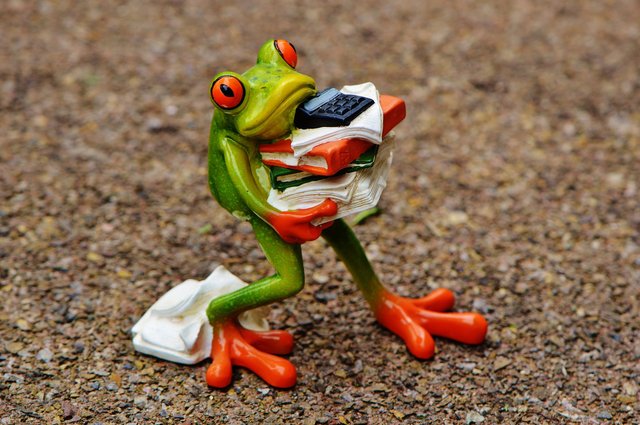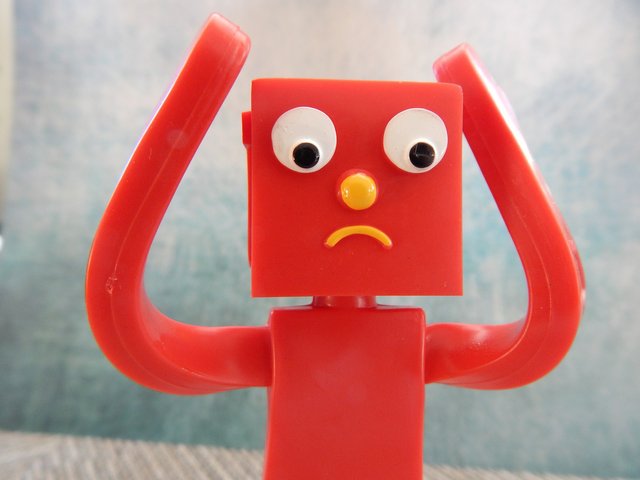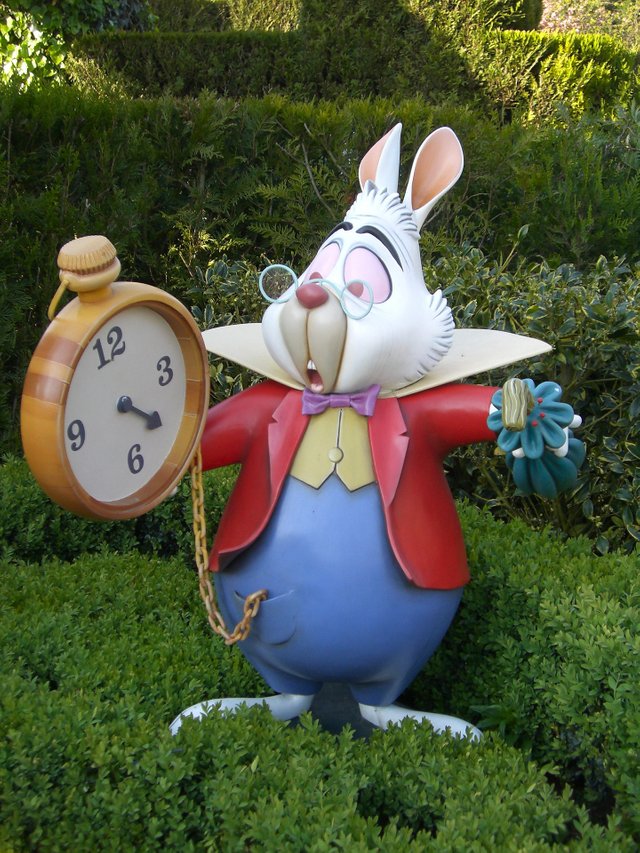How to Cope with Stress (Part 1) What is Stress?
Last time (like a decade ago) I posted an article about having a vacation and what it does to your mental health.
Let me remind you - it does you good :)
At the end of my article, I stated that the effect of a vacation fades away in a couple of weeks. So, if you really want to deal with your high-stress levels, you should definitely do something more than booking a vacation once a year.
But first of all, what is stress exactly?
In Psychology Dictionary stress is defined as:
(Stress) is the state which is seen in response to internal or external stressors. Every system of the body responds to stress in varying ways. Stress enlists changes affecting almost every system of the body, influencing how people feel and behave.
A stressor could be a physical one like temperature, pain, chronic illness. Or a psychological one like a situation, a person, or an event.
According to the Center of studies of the human stress, psychological stress occurs as a phenomenon when one is being put in a situation of:
- Novelty - You have never experienced the event before
Remember the first time you flight? Or the first time you drove a car? Did you get your heart pumping? Did your hands tremble with serges of adrenaline? These are all signs that you were under stress.
- Unpredictability - You were surprised and didn’t expect the event/ the situation
For example, all of the sudden your boss gives you an entirely new task and your agenda is full up already
- Threat to the ego - Your competence is questioned
Imagine you are making a presentation at work and a colleague never stops asking hundreds of questions as if she or he is questioning your authority. You will probably start sweating. This is another sign that you are stressed.
- Lack of control - You feel like you don’t have any control over the situation
Let’s say you are in a hurry for an important meeting and you can’t find a parking spot. Probably your stomach will crunch and your throat will become sore. These are other stress responses of the body.
As @dysfunctional stated in a post about fear, it is not necessary for a certain event to *happen” in order to be perceived as a stressor. Anticipating an event and imagining what would happen could be as stressful as passing over it (or even more stressful). As @dysfunctional pointed out, our brains can’t tell the difference between imagining a stressor and facing it in reality.
But is stress so bad after all?
Well, let’s see how stress could affect one’s health.
Brain
It affects your brain so that you could feel desperate, nervous, irritable, angry or sad. You could lack energy and have headaches. You may experience memory problems, suffer from sleeplessness or poor concentration. You might start having mental disorders like anxiety, panic attacks or depression.
Heart
Stress also affects your heart. You may experience faster heartbeat, palpitations or a rise of blood pressure. Stress increases the risk of high cholesterol and of a heart attack.
Stomach
You could have nausea, stomach ache or heartburn. You may gain or lose weight due to an increased or decreased appetite.
Pancreas
Stress increases the risk of diabetes.
Intestines
You could have diarrhea, constipation or other digestive problems.
Reproductive organs
You could experience reduces sexual desire, irregular periods for women, or low sperm-count and impotence for men.
Furthermore, your immune system will probably be affected so that it is more likely for you to get ill. You will also recover more slowly from illnesses. Skin problems like acne or dermatitis could also be triggered by high levels of stress. (3, 7).
You wonder how does it happen?
In 1936 the Hungarian-Canadian endocrinologist Hans Selye conducted serial experiments with rats which revealed the consequences of stress to the body. He injected mice with a variety of noxious agents but got the same respond (swelling of the adrenal cortex, atrophy of the thymus, gastric and duodenal ulcers). Thus, he concluded that there should be a general “state” of the body which causes these symptoms. Later he called it “stress”. He managed to expand his theory to humans, demonstrating that a break-down of the hormonal system due to stress could cause heart disease and high blood pressure (4, 5, 6).
Selye continued his research and developed a theory for the so-called “ General Adaptation Syndrome” (GAS). GAS is a process that the body goes through when it is exposed to stress. Selye examined the stress response and concluded that it comprises three phases:
Alarm reaction
When a stressful event is registered, it is followed by an activation of the hypothalamic-pituitary-adrenal system. The adrenaline boosts one's energy and prepares them for a fight or a flight. The blood pressure and the heart rate go up. The level of the blood sugar in the body also increases. A stronger blood flow to the muscles occurs. Muscle tension also increases. The cortisol and the cortisone in the body suppress the immune system. On the other hand, there is a decrease in the production of hormones by the reproductive system. (2,10, 11)Resistance
In this stage, the body tries to adapt to the stressor after being mobilized in the previous one. In other words, the body tries so to calm down in order to cope more effectively with the stressor. There is a reduction in the intensity of endocrine and sympathetic activity, although it is still higher than normal, but lower than the alarm phase. The body aims to regain its inner balance (homeostasis).
In case that this phase continues longer than usual, the body's adaptive energy reserves may decrease significantly. One may experience fatigue, irritability, loss of concentration, and lethargy (2, 11).Exhaustion
The defense systems of the body are worn out. Even a minor additional stressor causes a huge response. Persistent or chronic stress is associated with an increased level of cortisol curculating in the body. This is thought to have an adverse effect on different systems like the digestive system, circulatory system, the immune system, etc. On the other hand, adrenal exhaustion has an adverse effect on the levels of blood sugar. Reduced energy levels and low blood glucose could trigger symtoms like reduced tollerance to stress, colic and gastric ulcer, high blood pressure, heart attacks (2, 6, 11.
Ugh, stress is not the best thing in your life, right? Let’s just do something and get rid of it, OK?
Well, bad news. It is simply not possible. Stress is a part of our lives.
I know what you are thinking. But, no, hiding deep in a rabbit hole to avoid life (sorry, stress) is not an option. Rabbit holes are not stressless. Ask Alice from Wonderland. She almost got herself killed there.
Escaping stress is like escaping life.
However, as I stated in my previous post, taking a vacation could help. You will definitely feel better and will have fewer physical complaints (1). However, vacations cannot do all the work as far as stress management is concerned.
Rabbit holes are not stressless
That is why I decided to dive a little bit deeper and dig out what actually helps us deal with everyday stress. Don’t worry! I am not going to list 5 easy steps to stressless life that never work. We will talk about your personal coping style which more or less shapes your life. It simply does one thing: it helps you deal with the obstacles you meet.
In my next series of articles, we will explore different coping strategies and how they make us act the way we act, thus inevitably affecting one's well-being.
But first of all, I need to gather some empirical data from you :) I will be grateful if you share how you deal with stress. Besides being curious, I think it could be extremely helpful for other people.
Thanks for spending your precious time reading this article. I hope I see you around.
Created by Valeria Sim, @insight-out.
All rights reserved.
References:
(1) Fritz, C. and S. Sonnentag, Recovery, well-being, and performance-related outcomes: the role of workload and vacation experiences. Journal of Applied Psychology, 2006. 91(4): p. 936.
(2) Selye, H. (1950). Stress and the General Adaptation Syndrome. British Medical Journal, June 17, 1383-1392
(3) Schneiderman, N., Ironson, G., Siegel, S. (2005). STRESS AND HEALTH: Psychological, Behavioral, and Biological Determinants, Annu Rev Clin Psychol. 2005; 1: 607–628.
(4) https://en.wikipedia.org/wiki/Hans_Selye
(5) https://www.britannica.com/biography/Hans-Selye
(6) http://www.pearsoned.co.uk/bookshop/minds/rexpress/questions/psychology/9-stress-answers.pdf
(7) http://www.mentalhealthamerica.net/conditions/stress-coping-everyday-problems
(8) https://humanstress.ca/about-cshs/
(9) https://psychologydictionary.org/stress/
(10) https://psychologenie.com/stages-of-general-adaptation-syndrome-model-by-hans-selye
(11) https://www.medicalnewstoday.com/articles/320172.php
Images (Under cc0 Creative Commons):
https://pixabay.com/en/frog-figure-files-stack-1339892/
https://pixabay.com/en/monster-comic-cartoon-funny-1233393/
https://pixabay.com/en/upset-sad-confused-figurine-534103/
https://pixabay.com/en/time-too-late-disneyland-minute-1786138/




This post has been rated by the user-run curation platform CI! In this platform users are able to manually curate content. This is done regardless of Steem Power, for both rewards and vote size calculation.
Join in at our site here!
https://collectiveintelligence.red/
Or join us on discord to interact with the community!
https://discord.gg/sx6dYxt
This post was submitted for curation by: @f3nix
This post was given a rating of: 0.9938923633850643
This post was voted: 100%
Thank you, guys! A lot!
Oh ... how nice to see you posting again @insight-out! :)
Overall, I am not a stressed person. But, I experienced a lot of stress at the end of 2017/beginning of 2018 , mostly as a consequence of 2 out of the 4 reasons you listed here: Novelty & Unpredictability. I don't deal well with last minute situations or 'surprises'. 😣 I feel I have come a long way, but I also feel there is still a lot of room for improvement!
And because one cannot be prepared or plan every single thing in life, I have my ways to minimize my struggle: 1) I follow a structured daily routine, which allows me to plan most things ahead and not feel pressured by deadlines. 2) I practice Yoga daily (Yoga, in fact is one of my passions). These, I feel are more preventive measures that I implement along a healthy diet, good sleep and quality time with friends and family.
As for when I am caught in the middle of the storm: I go for looong walks, do even longer sessions of Yoga, write, write and write and wait to calm down to voice, or express anything that needs to be said. These strategies helped me greatly at the beginning of this year :)
I trust you & the family are all doing great! 😁
Hey there, Abbi! It is so nice of you to stop by :)
I couldn't agree more with you because whenever it comes to personal growth there is always a room for improvement :) I have so many things on my list and dealing with stress better is one of them :) Although, as you said, I have also come a long way.
I do very similar things to what you have listed. I do sports - jogging and tae-bo help me a lot. I tried yoga a couple of times but didn't work for me. Or at least for now :)
I also like long walks, especially if they are in the countryside. When I am under heavy stress I try to do things with my hands like home decoration. It is like a meditation for me :) And I also start to write - it helps me clear my mind and put my thought in order-ish :)
I think I know what you are talking about. Since the end of 2016 my husband and I have been under a lot of stress due to events one cannot control. These have been the most difficult years in my life. We have made a lot of changes in our lives and I hope things will slowly get back to normal one day :)
Thank you so much for reading and commenting!
Good evening (here) @insight-out. Very nice post you have created here!
I can vouch for this! 😉
Yes, agreed. However, I think we can make conscious decisions to reduce it as much as we can manage. As you document well in your post, the harmful effects of not doing so can be serious.
For most of my life, with some notable exceptions, stress primarily has been a part of my working environment. As a younger man, I simply refused to acknowledge the stresses in my life. As you say, stress is a part of life, so …
As I have gotten older, however, I have steadily grown in my determination to not simply accept the “status quo” and be resigned to nothing being possible as a remedy. To answer your question, then, I ‘deal with stress’ first by simply acknowledging that it is real.
From there, I refuse to “lay down” in the face of situations which cause me stress. In some regards, it might appear, at least on the surface, that “laying low” would reduce stress. Having a strong sense of justice and doing what’s ‘right,” I find that would actually increase my stress, so I don’t do that. In taking a stand, it gets complicated, but overall I feel better.
The ultimate solution for me and my family has been the decision that the expected “price to be paid” in my current work environment is simply unacceptable. While well paid and unlikely to be able to match that elsewhere, at this stage of my career, that is okay. My health and well-being are more important and, ultimately, of greater value … My last day working for my current employer will be in January …
Then, I am leaving on my “road to recovery” vacation, to see family and friends and get my sense of vitality back …
Well, that’s probably enough out of me for now. Nice to “see” you again, @insight-out. Keep up the great work! 👍
Hey, @roleerob! Thank you for your great comment!
You have just described some of the most successful coping techniques or the so-called "adaptive coping style" or "positive coping style". No need to read the next part of my series :D
This must be a huge step but I honestly believe that it will make space for even more opportunities and happier days :)
Thank you so much for stopping by!
All the best to you and your family!
Brava Val! The editing is very pleasing and captivating, there's so much quality and precision in your research. It's a flowing essay, easy to read but complete at the same time. My way of relieving stress is reading and practicing karate.. Wado Ryu is tough, no shortcuts, no fashon, nothing trendy in it. There's also meditation in karate and it's always so gratifying to immerse in that bubble of inner silence. I bring the martial art in all my life and it helps me a lot to react with balance in life happenings.
Thank you so much for your nice words! All my friends call me Val and when I read your comment I felt like a very good friend is writing to me :)
I do tae-bo. Yeah, I know, it is an ignorant version of martial arts... well, it is not even martial, neither it is art. Lol :D But I like the kicking.
Last year I tried to find a martial arts club for adult beginners but I couldn't find any here. And I felt embarrassed to go with the 4-year olds. Lol :D
So I do the tae-bo.
I have tried meditation a few times but I am not persistent enough. I guess it is really beneficial for one's well-being.
This is what is great about martial arts. They are not only sports but a way of living.
Thank you very much for stopping by! :)
Tae bo.. I checked it, it's quite a good training, looks like H.i.t. with kicks and punches. You should have a dojo where you can start lessons for adults even if you're a white belt.. they would never put you with kids ;-) Meditation is not easy, especially emptying your mind completely is (almost) impossible.. but it's a great help to focus and gives you that tranquil state of mind which is necessary when you practice martial arts.
A very inspiring contribution! Thank you very much.
Your question at the end makes me want to take part in your experiment.
As you say, one aspect of stress is to be on alert and therefore maintain a kind of stress level that is very exhausting. Always paying attention to whether what you say or do is benevolent to others, whether you give yourself professional nakedness, etc., is certainly widespread in the work environment.
Since we usually spend a lot of time working, my strategy is the following:
I work fewer hours with increasing age. I also choose my working environment more selectively and with whom I want to associate and whether the environment allows me to be relaxed or demands things from me that violate my ethical principles. So it is very stress-reducing to have a working environment that is in accordance with my chosen concept of life. Another stress-reducing element is that I no longer feel like I'm competing with colleagues (I never really have), but that I'm interested in working together and in consensus. Since the others do not see me as a threat, there is little cause for conflict on this page.
I have always liked to sleep in my private life. If possible, I lie down for half an hour in the afternoon. This relaxes me and gives me energy for the rest of the day.
Another method is that I spend a lot of time alone and reflect and write or work creatively in this time, which serve for self-reflection. It is even more stress-reducing when, for example, I already feel strained or depressed to listen to youtube videos of Buddhist monks. They ground me every time, making me calm and confident. It is a kind of spiritual sanctuary that I very much welcome.
Unfortunately I am less kind with my body. I allow myself a lot of rest and sleep as well as good and healthy food, but I should definitely have more sport and exercise. I haven't really ventured into meditation yet.
I try to encounter situations which are strange to me or which have an unforeseen effect on me in such a way that I regulate calm breathing at the moment of stress and tell myself: This moment will also pass. This is extremely helpful.
On the whole, a more stress-free life probably also has to do with self-confidence.
I think that all people dream about such a work environment. I think it takes a lot of efforts and self-knowledge to accomplish this kind of working climate.
Competition stresses me out. Unfortunately, sometimes I get too competitive. The bad thing is that I am not always aware of it. It is a bit of a nonsense. Despite I don't like competition, I get competitive :/
I should try this :)
Thanks for your great comment!
This post has been voted on by the SteemSTEM curation team and voting trail in collaboration with @curie.
If you appreciate the work we are doing then consider voting both projects for witness by selecting stem.witness and curie!
For additional information please join us on the SteemSTEM discord and to get to know the rest of the community!
Congratulations @insight-out! You have completed the following achievement on the Steem blockchain and have been rewarded with new badge(s) :
Click on the badge to view your Board of Honor.
If you no longer want to receive notifications, reply to this comment with the word
STOPDo not miss the last post from @steemitboard: